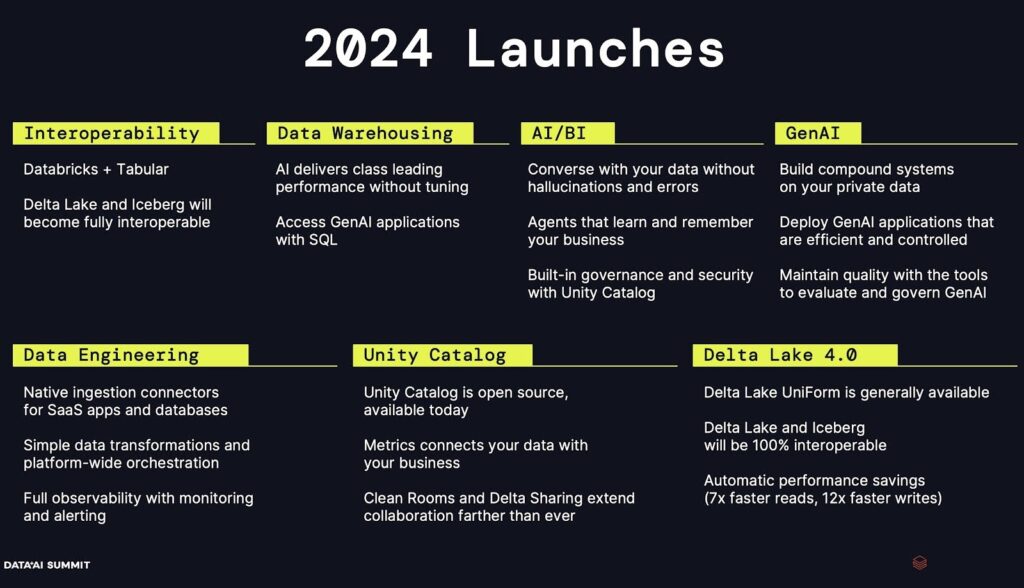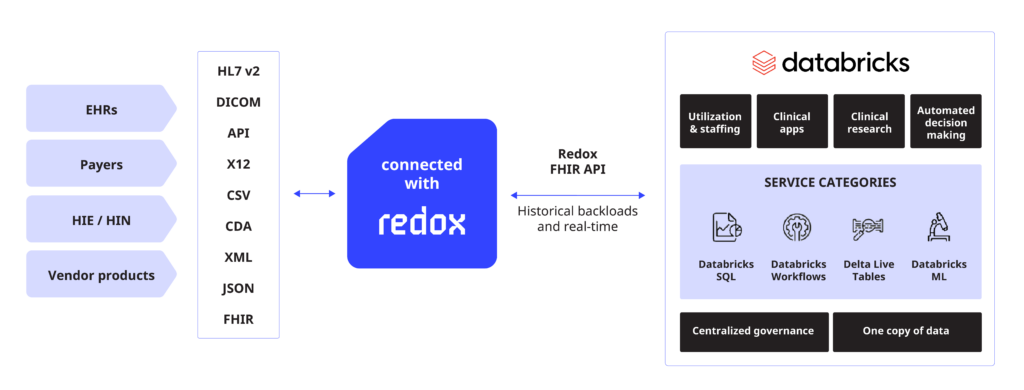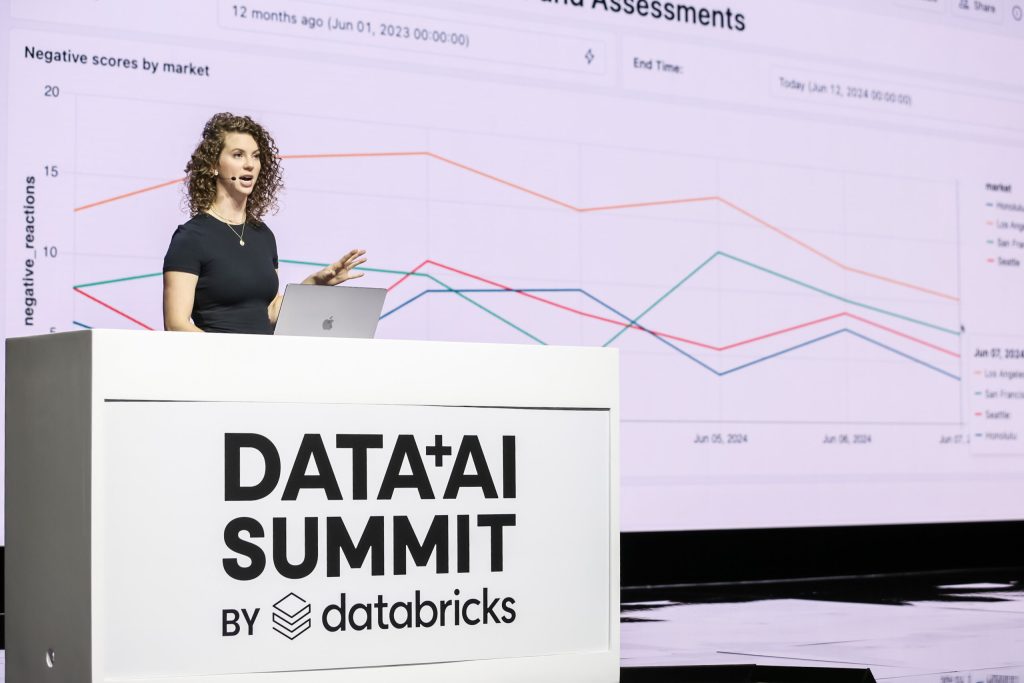Databricks recently wrapped up their 2024 Data + AI Summit (DAIS), bringing together data leaders from 140+ countries to explore the latest in lakehouse architecture, open source, and AI and ML technologies. More than 60,000 global data professionals attended 600+ sessions on data warehousing, governance, and generative AI, with 60+ sessions focusing on healthcare and life sciences innovation.
Redox’s Toryn Slater (Strategic Growth and Partnerships) shares his need-to-know insights and takeaways from this year’s summit.
- Databricks announced new innovations across their product catalog, with solutions focused on GenAI, unified data governance, and Delta Sharing.
Data quality and governance was a major focus of new features announced at this year’s Data + AI Summit. Multiple advancements were made with Databricks’ Unity Catalog, a unified governance solution for data and AI across clouds, data formats, and data platforms. Unity Catalog is now open sourced, part of Databricks’ commitment to an open ecosystem for enhanced flexibility and control. Databricks is also deploying new monitoring tools to diagnose and enforce data quality, as well as visualize trends and anomalies in data over time.

Learn more about all of the changes and innovations announced at Data + AI Summit on the Databricks blog.
- Data quality is paramount for AI implementation—and a governance framework is key to smartly scale an AI strategy.
Healthcare organizations are incorporating AI into their workflows to improve efficiencies and make better business decisions with data-driven insights. Multiple summit sessions focused on leveraging AI to accelerate innovation, as well as how to turn lofty AI aspirations into quantifiable business value.
Most healthcare providers push AI governance down on their priority lists, focusing instead on fast innovation. But without this structure in place, data quality and accuracy will inevitably suffer. External AI pressures are also mounting. With forthcoming regulations and increasing concerns over incomplete data, algorithmic biases, and exacerbated health inequities, providers can’t afford to delay a governance strategy much longer.
Related resources
Redox’s newly released guide to AI governance helps organizations wade through the complexity and uncertainty of managing healthcare data for AI. Expert recommendations informed by Databricks will help providers maximize data value while minimizing AI’s potential risks.
Mike Sanky, Databricks’ Global Industry Lead of Healthcare and Life Sciences, also recently joined Redox on our podcast Diagnosing Healthtech. Watch our discussion on reinforcing a strong AI strategy with a foundation of data governance.
- Real-time data streaming is critical to enabling many healthcare use cases.
Multiple summit sessions honed in on maximizing the value of data and accessing data faster to power time-sensitive clinical use cases. Databricks refers to this phenomenon as “improving the speed-to-insight,” allowing key stakeholders to make quicker, more informed decisions. Real-time data access can accelerate diagnoses and treatment, enhance patient monitoring, and streamline workflows to automate processes and reduce costs.
Redox was part of this year’s Industry Experience at DAIS, where thousands of in-person attendees learned about our partnership with Databricks to enable BI and AI with real-time streaming. Redox securely delivers healthcare data into Databricks in real time, unifying data across sources from electronic health records (EHRs), health information exchanges (HIEs), payer source systems, and digital health technologies. With the right data, healthcare organizations can collaborate, build 360-degree patient views, run analytics, and use AI and ML with powerful Databricks tools.

Catch up on more than 500 sessions on demand from this year’s Data + AI Summit, and learn more on how to hydrate your Databricks Data Intelligence Platform with Redox.

